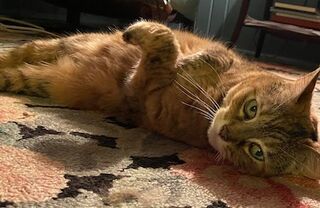Career
Decision Fatigue and Many Other Fatigues
A Personal Perspective: How I cut down on stress in the era of busyness.
Posted July 26, 2022 Reviewed by Abigail Fagan
Key points
- Research shows that making decisions takes energy, a phenomenon called decision fatigue.
- If making decisions takes energy, worrying, second guessing, feeling guilty, and other mental activities may as well.
- Planning the day and considering roughly when to do what can cut down on decision fatigue and other mental fatigues.
Many years ago I had a job in a toothbrush factory. I had to scoop up handfuls of toothbrush handles and align the handles so the curves all went the same way and then I had to stuff them into two different hoppers and grab little wads of bristles and stick them in a certain place in the machine and keep an eye on the toothbrushes that were shooting out the side, all at a speed that I couldn’t keep up with. I found it incredibly stressful and boring at the same time and after three weeks I quit; I had taken a semester off from college to live in the real world but three weeks of that kind of real world was plenty for me. But during those three weeks I drove to the factory every day in the middle of the afternoon—the job was second shift, from 3:30 p.m. to 12 a.m.—and worked on that machine, grabbing the handles, wrestling with the bristles, and so forth, for eight whole hours—and then I drove home and went to bed and did it all night long in my dreams. Of course, no toothbrushes appeared in the real world while I was making them in my dreams. But that doesn’t change the fact that I was doing all that work while I was asleep.
I thought of that recently when I read about decision fatigue. Researchers have discovered that making decisions takes energy, and it’s cumulative; the more you’ve decided on a given day or spot in time, the less easy it is to make further decisions, and this is called decision fatigue.
As I try to rest and relax in this era of constant busyness and stress, I’ve been realizing that I can be doing invisible, incorporeal work even when my body’s not doing much of anything. Just like that decision fatigue research shows, just like I was doing when I made toothbrushes in my dreams.
And there are probably all sorts of ways I can be expending energy with my mind. Making decisions takes energy, there’s no doubt about it. When I’m struggling to make a decision, the invisible worker inside me is picking up one alternative after another, holding it, weighing it, putting it down. I try to cut down on that work by planning what I’m going to do, and planning from what time to what time I’m going to do it, at the start of every day. So I don’t have to keep debating about what to do, don’t have to keep lifting the little decision weights and putting them down, all day long.
If making decisions takes energy, surely so does worrying, where that tooth-brushing-making factory worker inside me is basically experiencing some potential disaster in the future, having all the feelings I might have when the bad thing happens, and then running around (still on the virtual reality plane; that is to say, still in my head) trying to find ways to keep it from happening.
Regret or second-guessing—feeling like I woulda, coulda, shoulda done something, like I saw in an ad that flashed across the TV screen once at the bank—is definitely another heavy-lifting job for the interior factory worker. And then there’s feeling like I should do something (instead of should have done something), don’t have enough time for something, or should quit what I’m doing right now to do something else. Plus there’s worrying that someone might get mad at me if I don’t, can’t, or forget to do something. There we’ve got worry fatigue combined with decision fatigue along with guilt and self-beating-up fatigue. And if I blame someone else because they or their needs are keeping me from doing something, I can add in the intense thankless labor of resenting.
I do believe it’s possible to cut down some of that inner work. Just being aware of it when it’s happening is probably the first step. Planning the day when I’m fresh in the morning—deciding roughly what I’m going to do when on that day—helps me with decision fatigue, as I said before. It also cuts down on guilt, fear-of-screwing-up, and worry-that-someone’s-going-to-get-mad-at-me fatigue.
Perhaps most helpfully of all, I’m learning to make decisions about when I’m not going to work. Because just thinking I should do something, even could do something, is a kind of work in itself. I put little boundaries around times when I’ll rest, usually from 12 p.m. to 1:30 p.m., and stick to them.
And I’ve learned that if, for example, I’m going on vacation, I’ll enjoy myself more and get a lot more rest if I decide beforehand that I’m not going to go over that manuscript or… (fill in the blank with some other large task), than if I tell myself that maybe I’ll go over the manuscript when I’m on vacation because after all I want to do it and I won’t get a chance to do it otherwise. Let’s face it, I probably won’t end up doing that work while I’m on vacation anyway—I’ll be to be too tired to do it, that’s why I need a vacation. And when I decide beforehand that I’m not going to do that work on vacation no matter how much I might need to, want to, et cetera, I feel free, relaxed, and unburdened, during my time off. But if I think I might do that work, some part of me will keep picking it up and putting it down, holding it in my thoughts, carrying it around. The tooth-brush-making factory worker inside me will never get a break, and eventually she may run out of the building and never want to go back.

References
Grant A. Pignatiello, BSN, RN, Doctoral (PhD) Candidate,1 Richard J. Martin, DNP, MBA, RN, CFP, Doctoral (PhD) Student, and Ronald L. Hickman, Jr., PhD, RN, ACNP-BC, FNAP, FAAN, Associate Professor of Nursing. (2020) Decision Fatigue: A Conceptual Analysis. Journal of Health Psychology.


